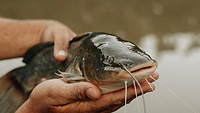After Sampling Shows Drugs in 20 Percent of 'Antibiotic-Free' Meat, USDA to Crack Down on Label Claims

Image credit: Freepik
The U.S. Department of Agriculture (USDA) has released an updated guideline to help industry strengthen animal-raising and environment-related label claims on meat and poultry products. With regard to food safety, such claims include “raised without antibiotics.” Other such claims include “grass-fed,” free-range,” “raised using regenerative agriculture practices,” and “climate-friendly.”
USDA has raised specific concern over negative antibiotic claims, and in addition to the updated guidance, may take future action to ensure label claims are truthful, such as random sampling activities and possible rulemaking.
Documentation is required to be submitted by companies to support these voluntary label claims, which is reviewed by USDA’s Food Safety and Inspection Service (FSIS). The claims can only be included on the labels of meat and poultry products sold to consumers after they are approved by the agency.
To help ensure that animal-raising and environment label claims are truthful, the guideline strongly encourages the use of third-party certification to verify that the standards required to uphold claims are being met on the farm. The revised guideline also emphasizes more robust documentation for environment-related and animal-raising claims.
The updated guideline also recommends that establishments using “negative” antibiotic claims (e.g., “raised without antibiotics” or “no antibiotics ever”) implement routine sampling and testing programs to detect antibiotic use in animals prior to slaughter, or obtain third-party certification that includes testing.
Updated Guidance Prompted by Antibiotic Residues in Products With Negative Antibiotic Claims, Future Action Possible
In light of concerns about negative antibiotic claims, FSIS recently conducted a study in partnership with USDA’s Agricultural Research Service (ARS) to assess the veracity of these claims. FSIS collected liver and kidney samples from 196 eligible cattle at 84 slaughter establishments in 34 states, and ARS analyzed the samples using a method that targeted more than 180 veterinary drugs including various major classes of antibiotics. The study found antibiotic residues in approximately 20 percent of samples tested from the “raised without antibiotics” market. A peer-reviewed paper with complete results from the study will be published in the near future.
Due to the findings of the study, FSIS may conduct additional sampling and testing activities in the future, making use of its authority to collect samples any time there is reason to believe a product is mislabeled with any claim covered by the guidance. Moreover, FSIS may consider future additional actions, including random sampling and rulemaking, to further strengthen the substantiation of animal-raising and environment-related claims.
Antibiotic use in food animals is a pressing concern to consumers and public health. The presence of excessive drug residues in meat can facilitate the spread of antimicrobial resistance (AMR).
The updated guideline will be available for public comment for 60 days after its publication in the Federal Register.
Looking for a reprint of this article?
From high-res PDFs to custom plaques, order your copy today!






